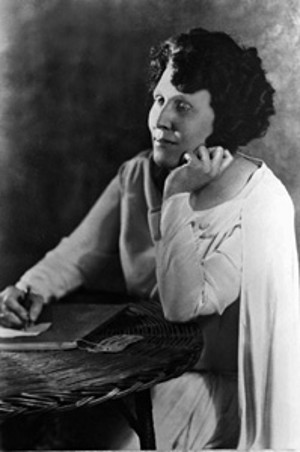Chapter II:
When Is It Wrong to Pray?
It would seem strange that there possibly could be a time when it would be wrong to pray. In a sense that is true. But in another sense it is just as true that there is a time when it is wrong to petition the Lord any longer for the desire of your heart. First let me give you the scripture: Joshua 7:10 “And the Lord said unto Joshua, Get three up, wherefore liest thou thus upon thy face?” This scripture is self-explanatory. The man of the story had been pleading with God for the desire of his heart, and it seems as we read that he keeps up this pleading long after God has heard him and sent the answer on the way. And so the Lord asks him why he should tarry any longer, and indicates very definitely that it is time for him to rise and go about his business, because he has been heard and there is no need of any further praying so far as the Lord is concerned. There undoubtedly comes a time when further praying is unbelief. There are those who have found without doubt that they can pray themselves out of faith. Let us look deep into the heart of this question and see if we have scriptural foundation for this assumption.
Some years ago in a little Western town, I was speaking in a hall where there was somewhat of a demand at the close of the meeting for a little souvenir that we were giving away that had our picture on it. I had only one left the last night when I came to the meeting, and this one I had kept for a sample to give the printer for renewing the order. As I came into the building that night, a young man, sweet of nature but not thoroughly developed mentally, asked me so earnestly for the picture that I promised him the one I had for a sample, and proceeded to write his name and address upon it, telling him it was his and I would send it to him just as soon as the printer had looked it over.
That night, at the close of the service, the young man came to me again, insisting that he did not want me to leave the town without his securing the picture. I took it from my purse and showed him how I had written his name upon it, thereby making it completely his, and I was only holding it for the time being. At the close of the service, I heard him asking another member of the party for a copy of the souvenir, saying that he had come for two evenings, inquiring for same. There was in his voice a note of irritation, because others had received, and he had been seemingly overlooked. The printing was to be done in another city to which we were going for our next campaign, so I still had the souvenir with me on the following night, which was our last evening in the city where the young man lived.
At the close of this last service, someone came to me and said that they felt very sorry for a certain young man in that city who was quite childish in his way, but worthy nevertheless, who was deeply disappointed because he did not receive one of the souvenirs, and they would be so happy if I had one that I could give him. The young man had evidently complained to this party. I found him, and taking him aside, explained to him definitely that he did have a souvenir; that I had already written his name and address upon it, that although he did not have it in his own hand to take home with him, it was just as surely his, as if he that moment carried it in his hands.
Turning then to the group that stood near, I made an object lesson of the circumstance, explaining that that was just the way we do with the Lord, asking Him for something which He promises definitely to give, and then when we do not get it on the instant, or rather, that we do not see that we receive it, or hold it in our hands, or otherwise recognize with one of the five senses that we have received it, we immediately go back to the Lord again and begin to renew our petitioning just as though he were deaf, dumb, and blind, and had never heard us at all, or had been entirely indifferent to His own Word, which He had given us so definitely as authority on which to come and seek the desire of our heart. Not once, but again and again we will come to Him, like half-witted children, babbling vain repetitions and acting as if His promises meant no more than the promises of some faithless human being who thoughtlessly made a lot of promises without the least intention of ever fulfilling them, or having any conscience regarding the same. It is truly an insult to the infinite heart of the Heavenly Father, whose Word, which is unfailing from everlasting to everlasting, has said: “He hath never failed in one of all His good promises”; “the promises of God are yea and Amen to the glory of God”; “Heaven and earth shall pass away, but My Word shall never pass away”; “whereby are given unto us exceeding great and precious promises.”
God’s promises cannot be compared to Man’s. Man is only human, and can break his word, but God dare not break His. His justice, mercy, truth, love and faithfulness are behind His Word, and not only that, God has the power to fulfill His promises, and it is not always within man’s power to do so.
